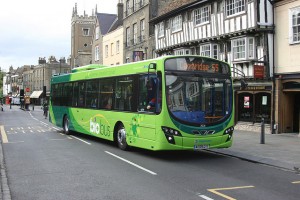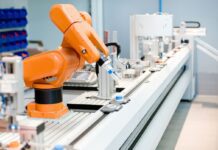The UK’s first bus powered entirely by human and food waste has had its inaugural ride on the streets between Bath and Bristol, reports the BBC.

The bus, which runs of biomethane gas generated through the treatment of sewage and waste, can travel up to 186 miles (300km) on one tank of gas, which takes the annual waste of around five people to produce.
The biomethane is generated at Bristol sewage treatment works in Avonmouth, which is run by GENeco, a subsidiary of Wessex Water.
“Gas-powered vehicles have an important role to play in improving air quality in UK cities but the Bio-Bus goes further than that and is actually powered by people living in the local area, including quite possibly those on the bus itself,” said GENeco General Manager Mohammed Saddiq.
The 40-seat Bio-Bus is run by tour operator Bath Bus Company and will shuttle people between Bristol Airport and Bath city centre.
“Up to 10,000 passengers are expected to travel on the A4 service in a month, which is available not only for airport travel, but also local journeys along the route through Saltford, Keynsham, Brislington, Knowle and Hengrove,” said Collin Field, Engineering Director at Bath Bus Company.
According to The Guardian, Bristol sewage treatment works processes around 75m cubic metres of sewage waste and 35,000 tonnes of food waste collected from households, supermarkets and food manufacturers each year.
By utilising the process known as anaerobic digestion, the plant each year generates a total of 17m cubic metres of biomethane – the equivalent of meeting the power needs of 8,300 homes.
“A home generated green gas, biomethane, is capable of replacing around 10% of the UK’s domestic gas needs and is currently the only renewable fuel available for HGVs. The bus also clearly shows that human poo and our waste food are valuable resources,” said Charlotte Morton, Chief Executive of the Anaerobic Digestion and Bioresources Association.
“Food which is unsuitable for human consumption should be separately collected and recycled through anaerobic digestion into green gas and biofertilisers, not wasted in landfill sites or incinerators.”



















